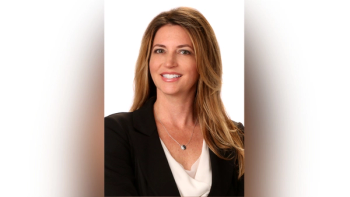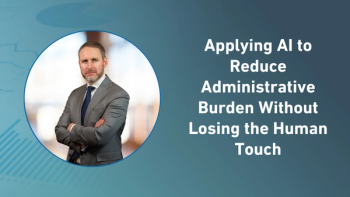
- Applied Clinical Trials-09-01-2022
- Volume 31
- Issue 9
Filling the Gaps in Clinical Trial Education, Literacy
Kevin Aniskovich, president and CEO of Jumo Health, discusses its foray into the clinical trials arena, which includes delivering multimedia educational resources to more than 200 trials spanning 90-plus languages in more than 75 countries.
Jumo Health, a global provider of age appropriate, culturally sensitive medical education resources for patients and caregivers, branched into the clinical trials space three years ago. In this Q&A, Kevin Aniskovich, president and CEO of Jumo Health, discusses its foray into the clinical trials arena, which includes delivering multimedia educational resources to more than 200 trials spanning 90-plus languages in more than 75 countries.
ACT: Jumo Health has experienced significant growth. Could you explain where the clinical trials program was a few years ago compared to now? How has it evolved?
Kevin Aniskovich: Prior to 2019, our work was focused on condition-specific resources for pediatric patients, primarily through our comic book line, Medikidz. In 2019, while researching areas for expansion, we uncovered massive deficiencies in clinical research within the areas of informed consent, enrollment, retention, and compliance. After further investigation, we developed a thesis that these issues stem from several incorrect assumptions that people understand their condition; appreciate the complexities of study protocols and how it can impact their participation and the expectations therein; and comprehend the written word, particularly as it relates to sophisticated legal language use in documents surrounding informed consent/assent.
We decided to focus on creating actionable educational materials for use in clinical trials. The initial go-to-market strategy was simple—as experts in pediatrics, we sought to provide age-appropriate resources for children and further segmented those resources by age cohort. We quickly expanded beyond comic books to include digital and video solutions to better reflect the way in which our target populations consume information.
What prompted Jumo Health to identify the need for more health literacy?
KA: With each trial, our learnings continued to inform product development, but also provided a greater understanding of the role that health literacy and culture play in the success or failure of a trial. What started out as providing resources for a pediatric population, began to include adult participants as we saw the impact that health literacy and reading comprehension plays within all ages.
We sought the root cause for the deficiencies in clinical trial recruitment and retention and compliance-related issues. What we found was staggering—only 10% of adults are considered proficient in matters of health care; 50% of adults are able to read above an 8th-grade level. As we examined the types of materials that most sites and sponsors provided to participants and caregivers, we learned that most materials were written at elevated grade levels—often beyond 12th grade—which is simply unacceptable. We can’t expect compliance if we don’t take the time to provide the requisite information in a way the recipient can understand and act upon.
What types of media are you using to teach patients about diseases and clinical trials?
KA: Jumo Health endeavors to meet the patient in a place that is familiar and convenient to how they learn best. To that end, we provide a broad range of resources in multiple mediums, including print, which includes graphic novels to flip charts; digital media, such as online activities to virtual reality; and both live action and animation videos. Our resources can be provided throughout the patient journey.
These resources are customized based on the age and culture of their target audience. Could you explain or give an example of how they can be so different?
KA: For example, the story line and 2D animation that will resonate with a 17-year-old white female with type 2 diabetes from Boston, MA, may not have the same impact with a 48-year-old Black male with type 2 diabetes from Jackson, MS, who may wish to watch a live-action video from someone sharing past experiences. We deliver evidence-based information in a relatable way that takes into account health literacy, reading comprehension, and cultural sensitivities, if the sponsor desires.
What’s next for Jumo Health in clinical trials?
KA: Without giving too much away, we will say that COVID shined a beautiful bright light on clinical research—including the lack of health equity—and the aspects that require a collective effort to cure. Jumo Health will focus squarely on its role to increase participation rates within traditionally underrepresented populations, which we will do alongside a local advocacy network across all our markets. An informed patient is a successful patient.
Articles in this issue
over 3 years ago
The Powerful Impact of Caregivers on Clinical Trialsover 3 years ago
Clinical Research Needs Greater Participant Diversityover 3 years ago
The Eradication of False Signals in Monitoringover 3 years ago
‘Record’ Gains in Bringing Research Closer to the Patientover 3 years ago
Contemplating a Pressing Drug Development Paradoxover 3 years ago
Evaluating the Use of Backup Solutions for ePRO Systemsover 3 years ago
CRAACO, Moving Trials Closer to Patientsover 3 years ago
Applied Clinical Trials September 2022 Issue (PDF)over 3 years ago
Getting Up to Speed on EU’s New Trial Application Systemover 3 years ago
Top Priority for Califf is Combating Health MisinformationNewsletter
Stay current in clinical research with Applied Clinical Trials, providing expert insights, regulatory updates, and practical strategies for successful clinical trial design and execution.




